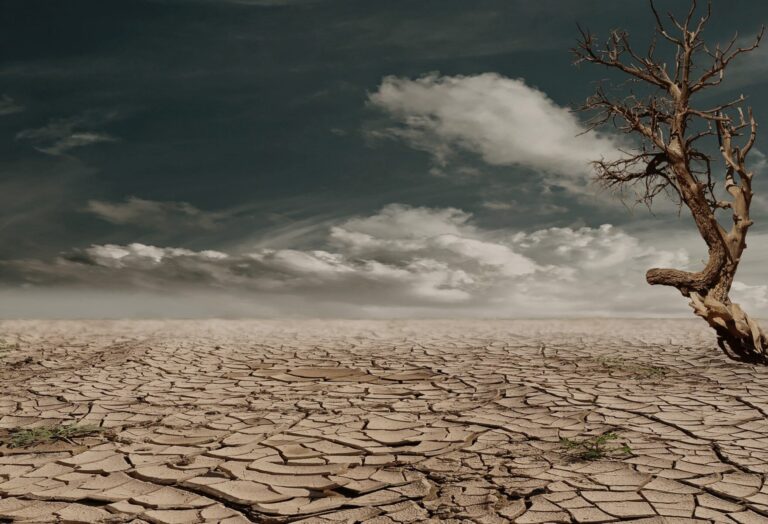Abidjan.— Deserts and arid regions are increasing by almost 12 million hectares a year on Earth. To stop this negative progression, the United Nations Convention to Combat Desertification (UNCCD) was approved in 1994, which held its 15th Conference of the Parties (COP15) this month in Abidjan (Ivory Coast). The result was, in general terms, the same as in other summits. While problems are becoming better understood, concrete actions, effective follow-up mechanisms and true cooperation between states are all still lacking.
If desertification continues at its current rate, 135 million people could be displaced in the coming decades. Nonetheless, the parties affirm they understand the urgency and need for a more concerted response to this phenomenon, which is inseparable from climate crises and the loss of biodiversity, and which has serious social and economic repercussions.
In addition, against the backdrop of the Russian-Ukrainian war, and in the face of the subsequent food crisis, COP15 was an opportunity to publicize local and international initiatives within the agriculture and food industries. The Abidjan summit was also an opportunity to take stock of the plant-based protein initiative launched at the European Union-African Union summit in February 2022, which highlights the close ties between food security, nutrition and land restoration.
Lastly, during the international event, the nearly 200 member states of the UNCCD adopted the “Abidjan Call” to prioritize the fight against desertification and drought-related issues. According to UN estimates, up to 40% of all ice-free land is already degraded, with dire consequences for climate, biodiversity and livelihoods.

Overlap and confusion
The issues are intertwined, but do they all need to be addressed at the same time? Environmental issues are obviously related: desertification is linked to climate change. In fact, both COP21 in Paris and COP26 in Glasgow were brought up in Abidjan. Food security and agriculture are also affected, as is biodiversity. But sometimes one wonders what the point of summits which tie all the problems together is when decisive action isn’t being taken to solve each one of them separately.
For example, in Abidjan, there was talk of drought and gender issues, as well as sand and dust storms, which “have all increased in frequency, intensity and duration in the last decade.” For instance, in reviewing the implementation of its Communication Plan, the parties called for raising awareness, especially among young people, of the relationship between fighting desertification and other aspects of sustainable development, and also of the importance of managing land sustainably, “while ensuring gender equality and women’s empowerment are essential elements of the messaging.”
Of course, there is overlap when it comes to critical issues and sometimes integrated approaches are necessary. But it’s more important to take concrete action on each environmental issue than to focus efforts on making links between them.
Unfortunately, Abidjan was no exception to the rule of summits: there were lots of declarations, but few actual concrete actions were agreed on.
Control mechanisms
Some very relevant reports have been produced that deserve attention. In particular, the report on the results of the institutions and subsidiary bodies of the Convention, the report on the measures implemented and, in particular, the report on financing.
For example, the report on the progress made in mobilizing resources for UNCCD purposes acknowledges that the body responsible for doing so, “because of its small staff, traditional funding procedure limitations and the reduced support compared to previous years (…) is not in a position to respond to the growing demand and expectations of the Parties.”
The general feeling is that there’s more good will than resolution, more words than actual actions from the States
The report of the Global Environment Facility on the financing for programs and projects which fight desertification, land degradation and drought is even more illuminating when it comes to the practical difficulties making it hard to move from words to action. It affirms that the subject should be a priority in the policies of the states affected by drought. That’s saying a lot. And, as for donors, the report maintains that “national plans should be coordinated with the initiatives of other donors that finance adaptation to climate change”.
In short, despite the usual euphemisms, there’s still much to be done in the fight against desertification. That’s the main lesson from the COP15 in Abidjan.
From words to deeds
Just as the COP15 is wrapping up, the international celebration of the World Day to Combat Desertification and Drought will be held in Madrid on June 17. In 2024, the COP16 will take place, in Saudi Arabia. Then Mongolia will host COP17 in 2026. And so on and so forth. The general feeling is that there’s more good will than resolution, more words than actual actions from the States. From one summit to another, the problems are increasingly better identified, better defined, better quantified, but still far from being resolved.
While the challenges are innumerable, especially in terms of cooperation and agreements, do we need a reminder that a call to action is not an action? It’s time to demand the States themselves assume their responsibilities. The COP15 was supposedly aimed at reminding them of the need to “enhance cooperation and coordination at the global, regional and sub-regional levels to address the causes and consequences of sand and dust storms”. But there were many such reminders throughout the summit documents.
Yet, in addition to the role of the States, we cannot forget our role as citizens to monitor their actions: to question, verify, cross-check, and keep track of delays and dissolutions.
Oyode Legnimin, lawyer
Hermann Hokou, researcher at the Audacity Africa Institute (Abidjan)
Translated from Spanish by Lucia K. Maher
